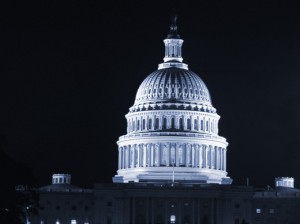 Congress and the president may have avoided pushing the country off the fiscal cliff. But they didn’t solve the deeper problem. The problem is that the government is spending one dollar for every 60 cents it takes in, and then it has to borrow the rest. In the long run, that has to destroy the country the way similar policies are now destroying smaller countries such as Greece and Spain.
Congress and the president may have avoided pushing the country off the fiscal cliff. But they didn’t solve the deeper problem. The problem is that the government is spending one dollar for every 60 cents it takes in, and then it has to borrow the rest. In the long run, that has to destroy the country the way similar policies are now destroying smaller countries such as Greece and Spain.
One sensible aspect of the fiscal cliff deal is that the payroll tax is restored to what it was before President Obama got Congress to lower it in order to stimulate consumer spending. The payroll tax supports the Social Security program, which is already paying out more than it is taking in. Cutting that tax was pandering to voters at the risk of further jeopardizing Social Security. That mistake has now been fixed, even though further fixes will be needed if that program is to survive for the long run.
The deal raises income taxes on household earnings of more than $450,000 a year. Those people can afford it, so the bill makes sense. What doesn’t make sense is that according to the Congressional Budget Office, the deal will increase the federal deficits by nearly $4 trillion over the next 10 years.
The estimate is likely to be off in the numbers but not in the overall effect: The government will continue to spend far more than it is taking in. Only a vigorous and fast-growing U.S. economy can turn that trend around. To achieve that, the government would have to unleash private enterprise. But the Obama administration has been doing the opposite, burdening the economy with more and tighter rules. So while the cliff has been avoided, the outlook for Americans who want to work for a living continues to be grim. (hh)

